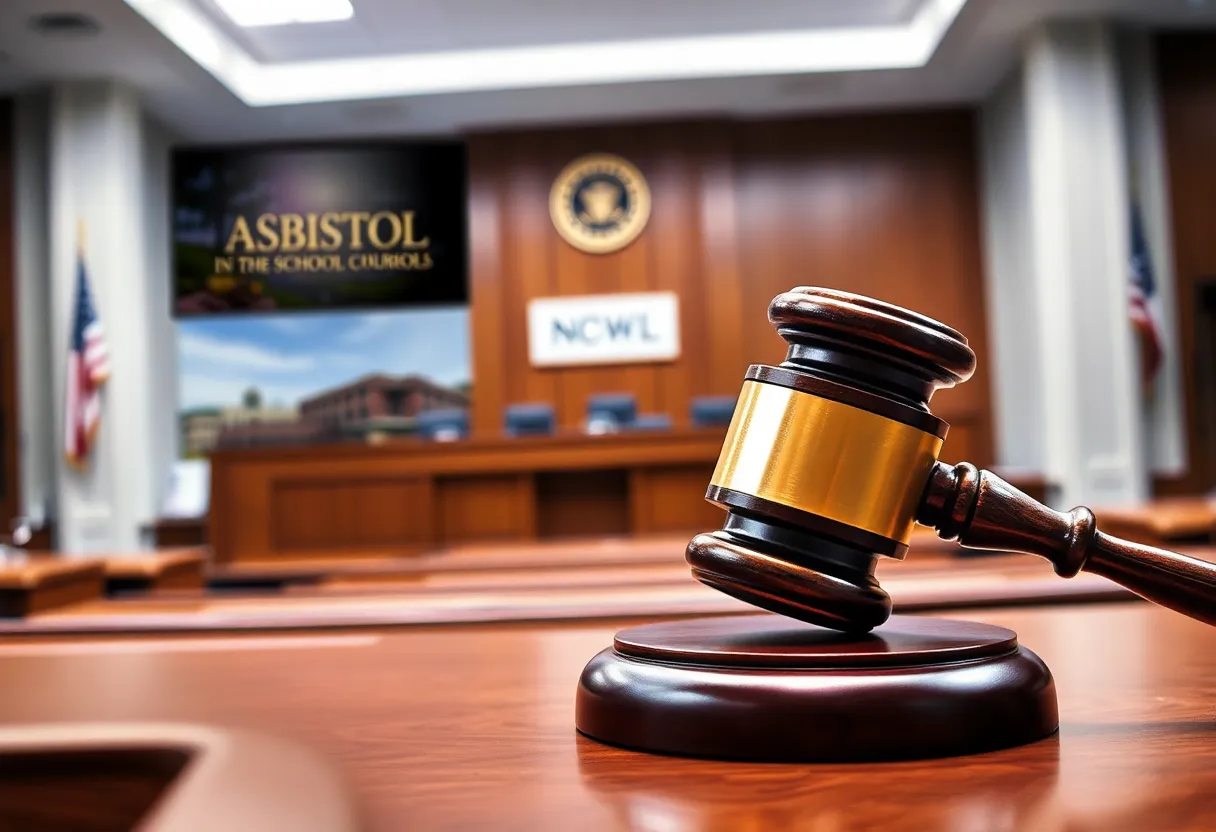News Summary
The Philadelphia School District has been charged with serious asbestos violations following a five-year investigation, raising concerns over student and staff safety.
Philadelphia School District Faces Charges Over Asbestos Violations
The U.S. Attorney’s Office for the Eastern District of Pennsylvania has made headlines by filing criminal charges against the Philadelphia School District for serious violations of asbestos regulations. This unprecedented move stems from a comprehensive five-year investigation orchestrated by multiple governmental entities, including the Department of Justice (DOJ), the Environmental Crimes Section, and the Environmental Protection Agency’s Criminal Investigations Division (EPA-CID). This case underscores ongoing issues of asbestos management in public schools, which have far-reaching implications for the safety of students and staff.
A First in the Nation
The Philadelphia School District now holds the dubious distinction of being the first school district in the United States to face criminal charges under the Asbestos Hazard Emergency Response Act (AHERA). The case marks a milestone in legal history as it is also the first time that a Deferred Prosecution Agreement (DPA) has been applied to an AHERA case involving a public school district. The DPA was filed in court on June 26, 2025, revealing shocking findings about the district’s mishandling of asbestos issues.
Alarming Findings from the Investigation
Under federal law, school districts are legally mandated to conduct inspections, remediate, and report any damaged asbestos. Specifically, AHERA requires that formal inspections occur every three years, with additional reviews every six months. Unfortunately, the investigation concluded that the Philadelphia School District grossly failed to meet these essential requirements. Timely three-year inspections were not conducted at several schools, and there was a notable delay in performing a six-month inspection at Building 21 Alternative High School. The ramifications of these oversights are dire, especially considering the potential health risks associated with asbestos exposure.
Widespread Asbestos Contamination
The investigation unveiled a disconcerting reality: widespread asbestos contamination permeating Philadelphia schools, putting the health and safety of students and teachers at significant risk. In fact, between April 2015 and November 2023, the DPA identified 31 school buildings with serious asbestos-related issues. Some schools had to be entirely closed due to the hazardous conditions, and alarming reports of improper handling, such as making use of duct tape to cover damaged asbestos, have emerged.
Monitoring and Compliance
The DPA outlines that the district’s actions will be under the stringent monitoring of a federal court for approximately five years. While compliance with the DPA could see the criminal charges dropped, failure to adhere to the stipulated terms would result in severe penalties. A district which had previously experienced a significant backlog in required inspections has already initiated notable changes.
Improving Asbestos Management
In response to the charges, the school district has ramped up its commitment to tackling asbestos issues head-on. The operational budget dedicated to environmental management has surged from $10.2 million in fiscal year (FY) 2021 to an impressive $55.7 million in FY 2025. Inspections have doubled in frequency, now occurring twice a year across all district-owned buildings, whereas the district admitted to having fallen significantly behind in compliance due to a lack of resources.
A Commitment to Safety
The school district has also prioritized transparency, enhancing its communication by publicly posting inspection reports on its website. Plans are in place to provide training on asbestos management for specific staff members as part of the DPA. This initiative aligns with the district’s strategic plan, emphasizing the safety and well-being of every individual within its schools. Past mismanagement has revealed consequences that are all too real, including hospitalizations among staff and students due to exposure during renovations.
The Road Ahead
Despite the systemic failures, there is hope for improvement within the Philadelphia School District’s handling of asbestos. The main building of Frankford High remains closed due to extensive asbestos problems, but plans for reopening hinge on comprehensive repairs aimed at making it safe for students and staff. Asbestos remains a serious issue in the district, with approximately 300 of its 339 buildings containing the hazardous material, posing a continuous challenge.
While asbestos is generally safe when undisturbed, it invokes perilous health risks when compromised, leading to severe conditions like asbestosis and mesothelioma. Moving forward, the Philadelphia School District faces significant scrutiny as it attempts to rectify its failures and ensure a safe educational environment for its students.
Deeper Dive: News & Info About This Topic
HERE Resources
Government’s Sharp Turn on Asbestos Ban Sparks Outrage
The School District of Philadelphia Faces Unprecedented Criminal Charges for Asbestos Violations
Chrysotile Asbestos Ban Faces Re-examination Under EPA
The Importance of Early Screening for High-Risk Groups
Family Seeks Justice After Tragic Mesothelioma Diagnosis
Major Changes Ahead in Surry County Schools: Retirements and Infrastructure Remediation
Violation Alert: Patten Town Faces Consequences Over Asbestos Removal Blunder
The Future of Asbestos: A Revolutionary Decarbonization Project in Quebec
The Hidden Cost of Service: Asbestos Exposure on the USS Higbee
Revolutionary Breakthrough: Gene Changes Linked to Asbestos-Induced Mesothelioma Uncovered



















